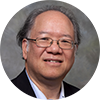
This conference focuses on small molecule and peptide or macrocyclic-based agents that have the potential to be developed into oral-based therapies for the treatment of autoimmune diseases and chronic inflammation disorders. The success of biologics for
autoimmune diseases coupled with rapid advances in basic research has validated many immunology-relevant signaling pathways and uncovered new intracellular molecules to target for potential new drug agents that can enter the cell. Discovering oral-based
therapies, which offer patient convenience, for autoimmune and inflammation conditions is a high priority in the drug discovery industry because of the chronic nature of many autoimmune and inflammation conditions and the fact that their incidence
is predicted to steadily increase due to the growing aging population. Join CHI's Autoimmune and Inflammation Drug Targets conference to network with colleagues and stay abreast of this rapidly advancing field.
Final Agenda
Day 1 | Day 2 | Download Brochure
RECOMMENDED ALL ACCESS PACKAGE:
Choose 2 Short Courses
or 1 Symposium and 2 Conferences/Training Seminars
Thursday, September 27
11:50 am Conference Registration Open (Foyer)
12:20 pm Plenary Keynote Program (Constitution Ballroom)
2:00 Refreshment Break in the Exhibit Hall with Poster Viewing (Grand Ballroom)
2:45 Welcome Remarks
Anjani Shah, PhD, Conference Director, Cambridge Healthtech Institute
2:50 Chairperson’s Opening Remarks
Shruti Sharma, PhD, Assistant Professor, Department of Immunology, Tufts
2:55 Discovery and Investigation of Selective Immunoproteasome Inhibitors
Michael Siu, PhD, Senior Scientist, Discovery Chemistry, Genentech, Inc.
The importance of the immunoproteasome for immune cell function has led to efforts to selectively inhibit this target to deplete pathogenic immune cells for the potential treatment of autoimmune diseases. Herein, we describe the discovery of β5i
(LMP7) selective inhibitors and their effects on immune cells. These inhibitors have provided new understanding of immunoproteasome inhibition that suggests selective inhibition may have limited potential for immune cell depletion.
3:25 The Anti-inflammatory Effect of SINE (Selective Inhibitors of Nuclear Export) Compounds in the Context of IBD
NEW: Douglas Widman, PhD, Research and Development Program Manager, Karyopharm Therapeutics Inc.
Karyopharm Therapeutics has developed a class of compounds known as Selective Inhibitors of Nuclear Export (SINE), which reversibly bind to and inhibit the function of nuclear export protein, exportin-1 (XPO1). In murine DSS induced colitis, longer, less
inflamed colons and more normal stool consistency was observed in mice treated with SINE compound. SINE compounds demonstrate the ability to reduce chronic inflammation by multiple mechanisms including inhibiting NF-kB activity even in presence of
TNF-α.
3:55 Identification of Two Novel Chemical Series for the Irreversible Inhibition of Myeloperoxidase (MPO)
 Andrew W. Patterson, PhD, Senior Investigator I, Global Discovery Chemistry, Novartis Institutes for Biomedical Research, Inc.
Andrew W. Patterson, PhD, Senior Investigator I, Global Discovery Chemistry, Novartis Institutes for Biomedical Research, Inc.
MPO is a peroxidase present in phagocytic cells that participates in innate immune response, with a primary anti-microbial function of generating powerful oxidants (i.e. HOCl). MPO activation is also associated with generating oxidants within tissues.
As such, plasma MPO levels have been linked to several chronic inflammatory diseases including cardiovascular disease. Here we describe two novel series of irreversible, mechanism-based MPO inhibitors that are orally bioavailable and active in vivo
in a peritonitis model of acute inflammation.
4:25 Refreshment Break in the Exhibit Hall with Poster Viewing (Grand Ballroom)
5:00 Role of STING in Innate Immunity and Implications for Drug Discovery
Shruti Sharma, PhD, Assistant Professor, Department of Immunology, Tufts
5:30 Inhibitor of NCK, a First-in-Class TCR Signaling Adaptor for Combatting Autoimmunity
Balbino Alarcon, PhD, Professor, Center for Molecular Biology Severo Ochoa, National Research Council of Spain, Madrid
Antigen binding to the T cell receptor (TCR) triggers the recruitment of the cytosolic adaptor protein Nck to a proline-rich sequence (PRS) in the cytoplasmic tail of the TCR’s CD3ε subunit. We have generated an orally-available,
inhibitor of the TCR-Nck interaction that selectively inhibits TCR-triggered T cell activation at subnanomolar concentrations. The inhibitor is not immunosuppressive and exerts a long-lasting protective effect in several models of autoimmunity
even when the compound is no longer present.
6:00 Pharmacological Regulation of the Keap1-NRF2 System Unveils Mitochondrial Targeting in Inflammation
 Michelangelo Campanella,
PhD, PharmD, Professor and Unit Head, Mitochondrial Cell Biology and Pharmacology, Research Group RVC and University College London Consortium for Mitochondrial Research
Michelangelo Campanella,
PhD, PharmD, Professor and Unit Head, Mitochondrial Cell Biology and Pharmacology, Research Group RVC and University College London Consortium for Mitochondrial Research
My talk will report upon Nrf2 inducers as pharmacological tolls in mitochondrial quality control operated by targeted autophagy. It will also dwell on their targeting of mitochondrial pathways which define autoimmunity and inflammation. The presentation
will therefore elaborate on the prominent in cell activity of the non-covalent Keap1-Nrf2 protein-protein interaction (PPI) inhibitor PMI, structurally distinct from the covalent Keap1 modifiers (e.g., sulforaphane) and highlight promising
ligands targeting mitochondrial pathways involved in the inflammatory response.
6:30 Dinner Short Course Registration (Foyer)
9:30 Close of Day
Day 1 | Day 2 | Download Brochure
Friday, September 28
7:00 am Registration Open (Foyer)
7:30 Interactive Breakfast Breakout Discussion Groups - View Details
Room: Constitution A
Grab a cup of coffee and join a breakout discussion group. These are informal, moderated discussions with brainstorming and interactive problem solving, allowing participants from diverse backgrounds to exchange ideas and experiences and develop
future collaborations around a focused topic.
Table 1: The Microbiome and Autoimmunity
Moderator: Ulrich Thienel, MD, PhD, CMO, Finch Therapeutics, Inc.
- Promising drug targets shared across platforms (microbiome/small molecules/biologics) in treating autoimmune disease
- Treating autoimmune disease with full microbiome spectrum vs. single strain
- Drug development challenges for microbiome-based treatments
Table 2: IBD Drug Development
Moderator: David Y. Liu, PhD, CSO, Protagonist Therapeutics
- Why so much activity recently?
- What are the promising targets?
- What will the key unmet needs be in 5 years?
- What are the challenges ahead?
Table 3: Developing Kinase Inhibitors for Chronic Indications
Moderator: Philip A. Harris, PhD, Senior Director, Pattern Recognition Receptor DPU, GlaxoSmithKline
- Covalent vs. noncovalent
- Utility of kinase selectivity profiling data
- Integrating PK/PD to predict safety margins
8:30 Chairperson’s Remarks
Thomas Sundberg, PhD, Senior Research Scientist I, Center for Development of Therapeutics, Broad Institute of MIT and Harvard
8:35 KEYNOTE PRESENTATION: Bacterial Transformations in Autoimmune Drug Metabolism
Jason Michael Crawford, PhD, Maxine F. Singer ’57 Ph.D. Associate Professor of Chemistry and Associate Professor of Microbial Pathogenesis, Yale University
9:05 Reverse Translation for Therapeutic Development in the Human Microbiome
 Ulrich Thienel, MD, PhD, CMO, Finch Therapeutics,
Inc.
Ulrich Thienel, MD, PhD, CMO, Finch Therapeutics,
Inc.
A major challenge in microbiome research is interpreting correlations observed in human cohort studies or murine models. However, with the increasing abundance of clinical interventional data from experience with fecal microbiota transplantation,
there is an opportunity to develop therapeutic insights directly from clinical observations. Finch Therapeutics identifies microbial therapies by observing patterns of microbial engraftment that drive clinical responses. We plan to use the
patterns to develop a new generation of rationally selected microbiota therapies for Inflammatory Bowel Disease.
9:35 NOD2, Innate Immunity and the Microbiome
Klare Lazor, Graduate Student, Catherine Grimes Laboratory, Department of Chemistry and Biochemistry, University of Delaware
The bacterial peptidoglycan is a known antibiotic target. In addition to serving as an antibiotic target, the human innate immune system uses the peptidoglycan to detect bacteria and generate an immune response. Synthetic peptidoglycan fragments,
such as Muramyl Dipeptide (MDP), are known to interact with human Nucleotide-binding oligomerization domain-containing protein 2 (NOD2). However, an improper interaction is hypothesized to cause Crohn’s disease (CD). Consequently, we
are developing new tools to better understand this peptidoglycan-host interaction for the design of novel antibiotics and anti-inflammatory therapies.
10:05 Coffee Break in the Exhibit Hall with Poster Viewing and Poster Competition Winner Announced (Grand Ballroom)
10:45 Considerations in the Generation of Covalent BTK Inhibitors
Noel S. Wilson, PhD, Senior Scientist II, Discovery Chemistry and Technology, AbbVie
11:15 Evobrutinib (BTK inhibitor) in Autoimmunity: Preclinical Updates
 Andrew Bender, PhD, Senior Scientist, Discovery Biology, EMD Serono
Andrew Bender, PhD, Senior Scientist, Discovery Biology, EMD Serono
11:45 Enjoy Lunch on Your Own
1:15 Refreshment Break in the Exhibit Hall with Poster Viewing (Grand Ballroom)
1:55 Chairperson’s Remarks
Songqing Na, PhD, Senior Scientist, Biotechnology & Autoimmunity Res-AME, Eli Lilly and Company
2:00 FEATURED PRESENTATION: PTG-200, An Oral Peptide Antagonist of the IL-23 Receptor, for the Treatment of IBD
 David Y. Liu, PhD, CSO, Protagonist
Therapeutics
David Y. Liu, PhD, CSO, Protagonist
Therapeutics
2:30 NEW: Identification of a First-in-Class RIP1 Kinase Inhibitor in Clinical Trials for Immuno-Inflammatory Diseases via DNA-Encoded Libraries
 Philip A. Harris, PhD, Senior Director, Pattern Recognition Receptor
DPU, GlaxoSmithKline
Philip A. Harris, PhD, Senior Director, Pattern Recognition Receptor
DPU, GlaxoSmithKline
RIP1 kinase activity is a critical driver of cell death and pro-inflammatory cytokine production downstream of multiple signaling pathways including TNFR1. Hence RIP1 inhibitors have the potential to result in a broad therapeutic benefit in inflammatory
diseases. This talk will describe the identification of a novel and selective RIP1 inhibitor series from a DNA-encoded library, and the lead optimization leading to identification of development candidate GSK2982772, now in Phase IIa clinical
evaluation in psoriasis, rheumatoid arthritis and ulcerative colitis patients.
3:00 NEW: Targeting TLRs in Fibrotic Disease
Glenda Trujillo, PhD, Principal Scientist, Translational Research for Fibrosis Discovery Biology, Bristol-Myers Squibb Company
3:30 Late Breaking Presentation
4:00 Close of Conference
Day 1 | Day 2 | Download Brochure